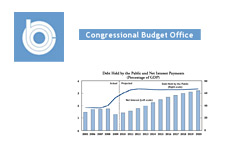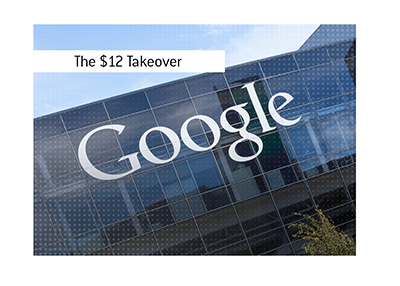Interest Payments Expected to Balloon Due to Increasing Debt Load and Higher Interest Rates
 Earlier this week, the CBO (Congressional Budget Office) released a report titled "The Budget and Economic Outlook: Fiscal Years 2010 to 2020".
Earlier this week, the CBO (Congressional Budget Office) released a report titled "The Budget and Economic Outlook: Fiscal Years 2010 to 2020". This report was filled with the CBO's projections for many different things, including projections for the national unemployment rate, federal debt levels, etc.
The CBO, in case you didn't know, is an independent, non-partisan federal agency that is responsible for providing economic data to Congress.
While reading through the report, two things really jumped out at me:
1. The CBO doesn't expect the national unemployment rate in the United States to drop below 9% until 2012, at the earliest.
2. The CBO anticipates that the US federal government will have an annual spend of $723 billion dollars for net interest by the year 2020.
As you are already aware, the United States is taking on a tremendous amount of debt as it continues to try it right itself after the economic crisis of 2007-2009.
The total national debt load, which currently sits at around $12.3 trillion dollars, is expected to swell to close to $20 trillion dollars by the year 2020.
According to the CBO, this rapid increase in the nation's debt load, as well as an expected rise in interest rates as the economy strengthens, will conspire to more than triple the nation's net interest payments by the year 2020.
The CBO estimates that the nation will spend $207 billion on its net interest spending in 2010, and approximately $723 billion in the year 2020.
Assuming that the population of the United States is around 400 million people by 2020, this would mean that the US government would be spending about $1,807.50 per person, per year, on net interest payments by 2020.
According to the CBO, "net interest primarily consists of the government's interest payments on debt held by the public, offset by interest income that the government receives from various sources."
Public debt is money that is owed to entities such as individuals, mutual funds, pension funds, foreign governments, etc.
The government must borrow money in order to fund its deficit spending. This borrowing comes with a price (interest payments).
According to the CBO, annual net interest spending will increase to 3.2% of the GDP by 2020, up from 1.4% in 2010.
Source: Cboblog.cbo.gov - CBO Releases the Budget and Economic Outlook: Fiscal Years 2010-2020
Filed under: General Knowledge



